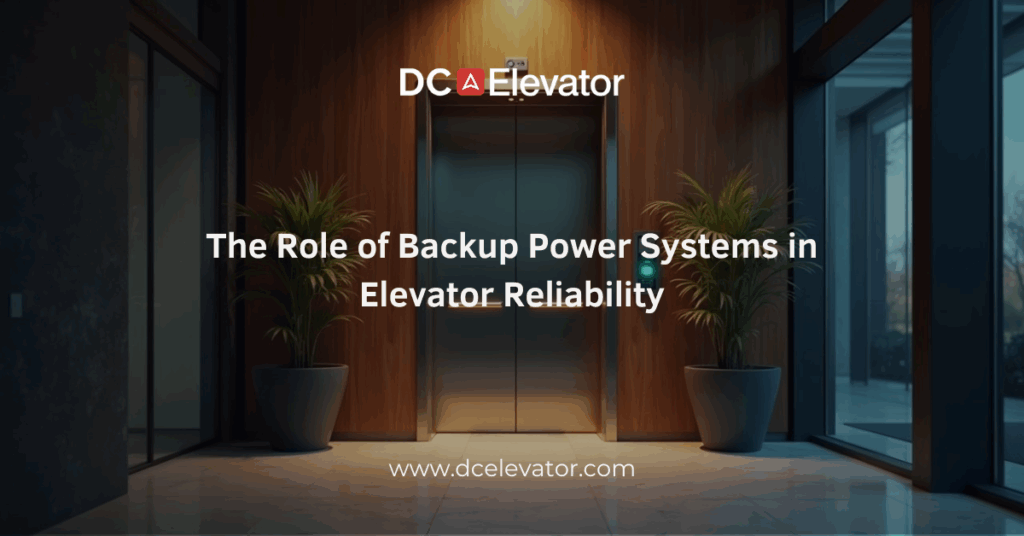Imagine this: a sudden power outage strikes during peak office hours, and dozens of people are left waiting—or worse, stuck inside an elevator. For property managers, building owners, and facility supervisors, this isn’t just inconvenient—it’s a serious safety and reliability issue. Elevators are vital infrastructure in residential, commercial, and healthcare facilities, and their uninterrupted operation is critical. This is where backup power systems come into play. By ensuring that elevators continue functioning even during blackouts or emergencies, backup power safeguards not only passenger safety but also your building’s reputation and operational efficiency.
Why Backup Power Matters for Elevators
Power outages may be rare, but when they happen, they can create costly disruptions. For elevators, this translates into more than just downtime—it directly affects tenant satisfaction, safety, and compliance.
-
Passenger Safety: Without backup systems, riders may become trapped mid-journey, creating panic and liability risks.
-
Business Continuity: In commercial spaces, outages can disrupt schedules and delay critical operations.
-
Reputation Management: Unreliable elevators can leave a lasting negative impression on tenants, employees, or visitors.
Installing a backup power solution ensures elevators remain functional long enough to safely transport passengers and resume essential building operations.
Common Backup Power Options
Different types of properties require different solutions. Here are the most common systems used to support elevator reliability:
-
Uninterruptible Power Supply (UPS): Provides short-term power to complete elevator trips and safely unload passengers.
-
Emergency Generators: Suitable for larger facilities, these systems can power multiple elevators during extended outages.
-
Battery Backup Systems: A cost-effective solution for smaller buildings, providing enough energy to prevent passengers from getting stranded.
Each system has its benefits, and the right choice depends on building size, usage, and critical operational needs.
Industry Examples: Where Reliability Matters Most
-
Healthcare Facilities: Hospitals rely heavily on elevators to move patients, staff, and equipment. Backup power is essential for life-saving operations.
-
High-Rise Residential Towers: Outages without backup can leave hundreds of residents stranded, resulting in major dissatisfaction.
-
Hotels & Hospitality: Guests expect seamless service—an elevator outage can harm a hotel’s brand image and reviews.
These scenarios show why facility managers must treat backup power as a necessity rather than an option.
How Building Owners Can Prepare
Regular maintenance and testing of backup systems are just as critical as installation. Building managers should:
-
Schedule periodic load tests to ensure systems activate as intended.
-
Coordinate with service providers to integrate backup power with elevator control systems.
-
Review local codes and compliance requirements for emergency preparedness.
By investing in reliable backup power, property owners protect both passengers and building operations from unexpected downtime.
Elevator reliability isn’t just about smooth rides during normal conditions—it’s about preparedness when the unexpected happens. Backup power systems provide peace of mind, protecting both passengers and building operations during outages. Whether in residential, commercial, or healthcare facilities, having the right backup solution is critical to safety and reputation.
If your elevators don’t currently have a backup power system, or if you’re unsure whether yours is sufficient, our experts can help. Contact us today to schedule an elevator analysis and ensure your system is equipped for reliability when it matters most.
